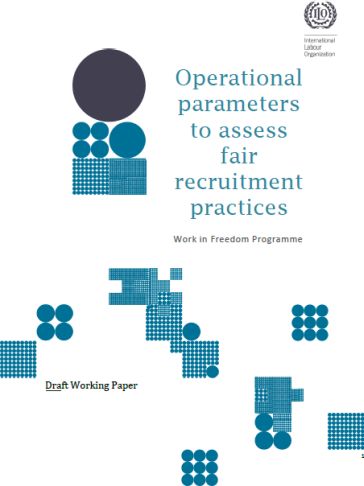
International Labour Organisation, 2016
There are different types of practices to support better recruitment of migrant workers. They generally vary according to context, regulation, stakeholders and the type of organisation or system that is used to organise recruitment. These indicative operational parameters have been designed to facilitate assessment of migrant recruitment practices in the framework of the Work in Freedom Programme of the ILO.
In South Asia, the pathways to jobs in domestic, garment or other similar sectors within the region or to the Middle East are intersected by various agents or contractors in an environment shaped by multiple rules and practices determining the mobility of aspiring workers especially women.
The fluidity and segmentation of labour supply chains and labour regimes are such that none of the key stakeholders such as labour recruiters, regulators and even employers can guarantee on their own a fair migration outcome for any workers. To do so requires understanding the specificity of recruitment processes from end to end and strong multi-stakeholder cooperation.
The purpose of these operational parameters is to identify the main fields that need to be assessed and related questions when analysing recruitment processes.
Download the full document